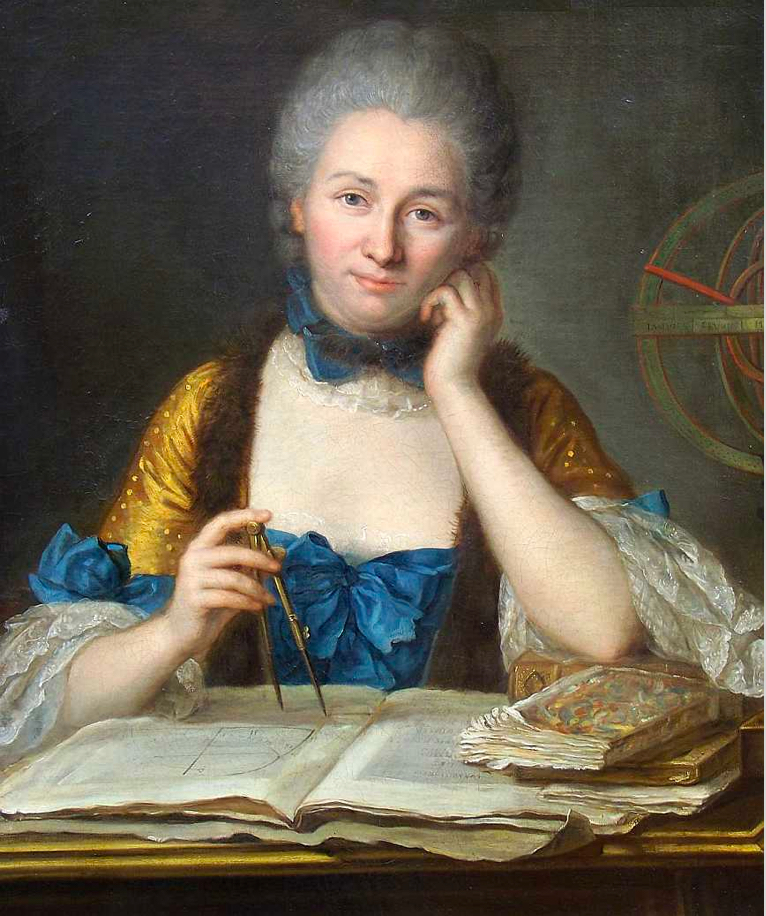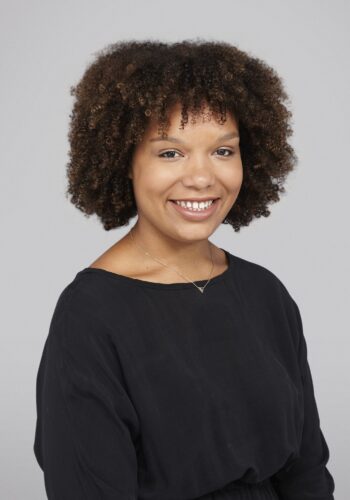POURQUOI LA TECH ?
Je n’ai pas tant choisi la tech que l’innovation ! Je travaille sur des méthodologies permettant de mieux identifier les besoins des gens et de co-construire avec eux les solutions innovantes pour y répondre : il s’agit souvent de solutions tech ou numériques, mais pas systématiquement. Je pense que la tech, si elle se met réellement au service des personnes et qu’elle s’articule avec l’humain plutôt que de tenter de le remplacer, peut être un formidable vecteur d’innovation sociale.
VOTRE PARCOURS ?
Je suis ingénieure polytechnicienne, docteure en chimie organique. Au départ, je souhaitais travailler dans la recherche pharmaceutique, puis j’ai décidé plutôt de devenir entrepreneure ! J’ai créé mon entreprise, Lowpital, en 2017. Pendant quelque temps (de début 2019 à mi-2020), j’ai également travaillé à mi-temps pour l’Assistance Publique – Hôpitaux de Paris en tant que cheffe de projet innovation. Mais depuis un an, je me consacre exclusivement au développement de ma société, qui a pour activité principale le conseil en innovation pour les acteurs de santé.
VOTRE PREMIÈRE EXPÉRIENCE PROFESSIONNELLE DANS LA TECH ?
Ma première expérience professionnelle a été mon doctorat, où j’ai pu vraiment assouvir ma soif de sciences. C’était passionnant, et à la fois cela ne me ressemblait pas tant que ça ! J’ai réalisé après quelques mois que j’avais plutôt un caractère d’entrepreneure. C’est pourquoi je suis tombée dans l’univers des startups, où j’évolue depuis 4 ans maintenant.
VOUS FAITES QUOI AUJOURD’HUI ET POURQUOI ?
Aujourd’hui, je dirige mon entreprise Lowpital. Notre mission est de donner du pouvoir aux citoyens, comme aux organisations, pour innover au service du soin. Pour moi, donner du pouvoir, ça passe par 3 actions : inspirer, former et rassembler. C’est ce que nous faisons via nos conférences, nos missions de conseil, nos formations et nos événements ! J’ai choisi cette voie car les problématiques hospitalières me fascinent et me semblent essentielles. Prendre soin les uns des autres, c’est l’essence-même d’une société, non ? Je pense que chacune et chacun a le pouvoir d’agir pour transformer notre système de santé, qui doit devenir plus inclusif et plus participatif.
VOS ATOUTS POUR CE POSTE ?
Je pense que ma plus grande force vient de mes convictions et de mes valeurs, qui sont ancrées au plus profond de moi et qui guident mes actions : solidarité, empathie, humilité. Elles sont au cœur de la mission de Lowpital et me confèrent un leadership auprès des personnes qui s’y reconnaissent. J’ai également la chance de réussir à partager ces idées à un large public et d’avoir trouvé un style de communication qui touche mes cibles ! Enfin, j’ai des facilités à rencontrer de nouvelles personnes et à faire grandir tant mon réseau que mes horizons de cette façon.
VOS DÉFIS PASSÉS, VOS RATÉS, VOS GRANDS MOMENTS DE SOLITUDE ?
Un de mes plus grands défis a été de convaincre mes premiers clients que malgré mon jeune âge et mon manque d’expérience dans le milieu médical, j’avais quelque chose de précieux à leur apporter ! Il faut dire qu’un de mes leitmotiv est « le pouvoir de l’ignorance » : je soutiens que ceux qui s’y connaissent le moins sont ceux qui auront le plus d’idées disruptives. Heureusement, cela illustrait bien ma propre position au début de l’aventure.
De manière générale, ce qui me pose le plus de difficultés, c’est l’équilibre vie pro-vie perso. Le problème des carrières dites « à impact », où on travaille pour une cause qui nous tient à cœur, c’est qu’il est très difficile de s’arrêter. J’en ai fait les frais à la fin de la première vague COVID, où j’ai fait un burn-out. Mais on apprend de ses erreurs !
VOS MEILLEURS MOMENTS, LES SUCCÈS DONT VOUS ÊTES FIÈRE ?
Pour moi, le meilleur moment, c’est le jour où j’ai embauché ma première salariée. Cela représente pour moi une immense fierté, que quelqu’un me fasse confiance, croie en mon projet au point de s’y impliquer à temps plein, et se reconnaisse dans mes valeurs et convictions. Aujourd’hui nous sommes 5, et à chaque nouveau recrutement, je me sens vraiment chanceuse et fière !
Un autre moment très marquant, qui a vraiment été un tournant pour moi, c’est ma conférence à S3 Odéon en 2017. C’était ma première prise de parole en public, et j’étais terrorisée ! Mais cette expérience m’a forcée à formuler clairement mes convictions, m’a donné confiance dans mes compétences d’oratrice et m’a permis de rencontrer plusieurs personnes très importantes pour moi. Je ne le savais pas encore, mais c’était la première d’une très longue série. Aujourd’hui, j’adore donner des talks et partager mes convictions. Cela me permet aussi de prendre du recul sur mes actions.
DES PERSONNES QUI VOUS ONT AIDÉE/MARQUÉE OU AU CONTRAIRE RENDU LA VIE DIFFICILE ?
Il y en a beaucoup. L’essence-même de mon projet est de rassembler, de travailler en collaboration et de co-construire. Par conséquent, je rencontre énormément de gens et je me nourris de ces rencontres.
Plus particulièrement, je vais citer Marie-Vorgan Le Barzic, la fondatrice du NUMA, qui a été une des premières personnes à me faire confiance en m’aidant à lancer le premier créathon Lowpital. Le fait qu’elle me fasse confiance m’a donné des ailes ! Et elle m’a permis de travailler avec ses équipes, ce qui, à l’époque, avait été déterminant dans la structuration du projet.
Je ne pense pas qu’il y ait d’autre personne qui m’ait rendu la vie dure… que moi-même ! En étant trop exigeante envers moi-même, trop négligente envers ma santé, trop obnubilée par le travail. Ce fameux équilibre, c’est quelque chose sur lequel je travaille désormais.
VOS ENVIES ET DÉFIS À VENIR ?
J’ai une ambition : rendre le système de santé plus participatif, convaincre nos dirigeants d’accorder plus de confiance aux professionnels comme aux usagers, favoriser la co-construction des produits, des services voire même des politiques publiques.
Je pense que cela passera par beaucoup de communication pour faire évoluer les mentalités, par l’élaboration et le partage de méthodologies adaptées, et par plus de diversité dans les profils de celles et ceux qui gèrent la santé de nos concitoyens aujourd’hui !
A plus court terme, je travaille actuellement sur une mission que le Ministre de la Santé nous a confiée, à mon amie Pauline Martinot et à moi, sur la promotion de la santé auprès des jeunes. Nous lui remettrons très prochainement nos recommandations : j’espère avoir ainsi un peu contribué à mettre en place des mesures utiles et efficaces.
ET VOUS FAITES QUOI EN DEHORS DE VOTRE TRAVAIL ?
De la musique ! J’adore jouer du piano, de la guitare, et par-dessus tout j’adore chanter, notamment en chœur. La sensation de disparaitre pour me fondre dans un collectif me rend très heureuse !
VOS HÉROÏNES (HÉROS) DE FICTION, OU DANS L’HISTOIRE ?
J’en ai beaucoup, mais pour les Femmes de Tech, j’ai envie de citer Hedy Lamarr. J’ai découvert son histoire grâce au documentaire Bombshell et depuis je pense très souvent à elle. Cette femme célèbre pour sa beauté, n’a longtemps pas été reconnue pour son génie. Ce qui m’inspire le plus dans son parcours, c’est sa résilience. Pendant toute sa vie, elle a continué à créer et à mettre ses inventions à disposition de ceux qui en feraient bon usage, malgré le manque de reconnaissance auquel elle faisait face. J’ai gardé de son témoignage le poème « The Paradoxical Commandments » de Kent M. Keith, que je relis de temps en temps pour me remotiver !
VOTRE DEVISE FAVORITE ?
« Il vaut mieux demander pardon que demander l’autorisation. » Cela s’est vérifié plusieurs fois dans ma vie et dans ma carrière… et c’est souvent la seule manière de faire émerger de vraies innovations et de transformer les organisations ! En tous cas, c’est la manière la plus rapide 😉
UN LIVRE À EMPORTER SUR UNE ÎLE DÉSERTE ?
Harry Potter ! Ce n’est pas très original pour ma génération, mais je suis une inconditionnelle !!
Sinon, je recommande chaudement « The Undoing Project » de Michael Lewis, qui mêle l’histoire de l’amitié entre Kahneman et Tversky à l’explication de leurs découvertes structurantes en économie comportementale.
UN MESSAGE OU UN CONSEIL AUX JEUNES FEMMES ?
Le premier : prenez soin de vous et de votre santé avant tout. On peut parfois l’oublier quand on a de grands rêves !
Le second : rencontrez des femmes qui vous inspirent, n’ayez pas peur de demander, et entourez-vous. Rien n’est plus puissant que la sororité !


